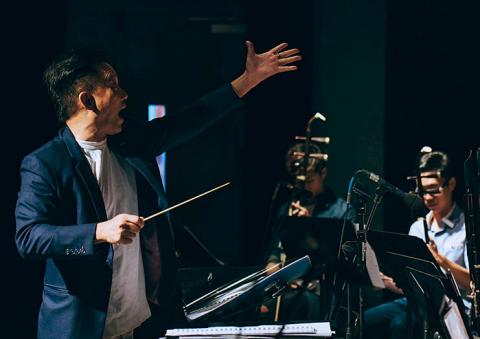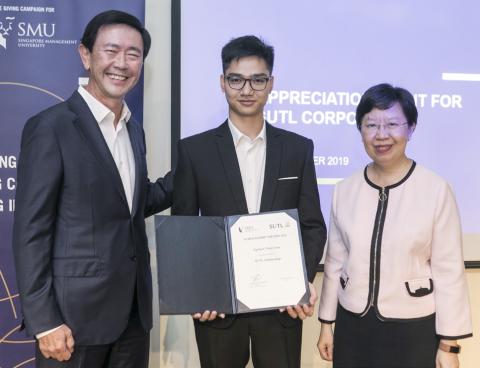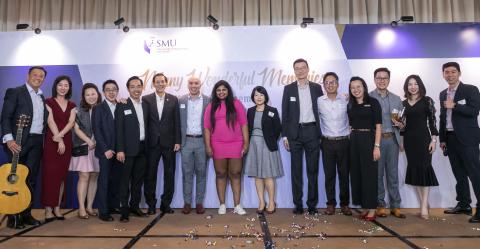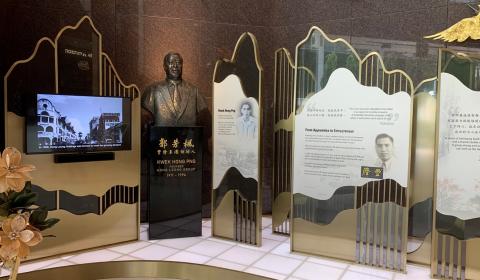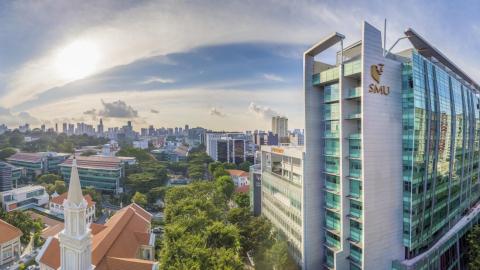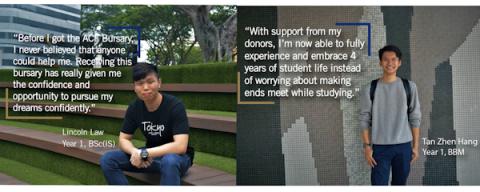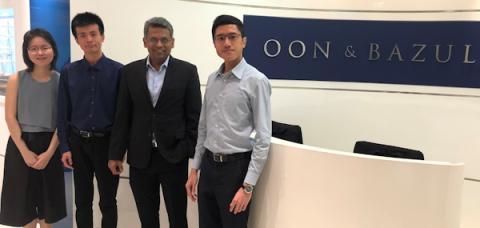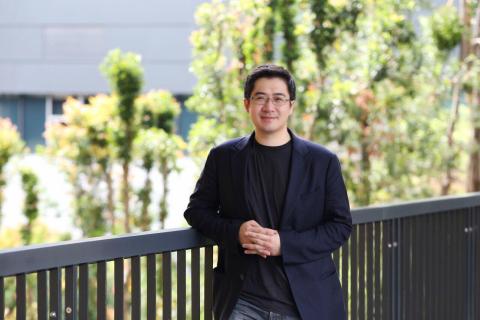China Scholar and sociologist Andrew Walder weighs in on China’s Property Revolution at Ho Bee Professorship in Chinese Economy and Business Lecture Series
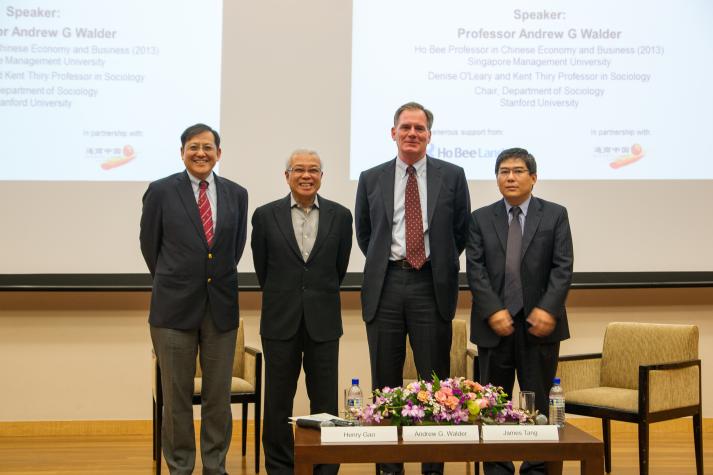
-
China’s transition from a centrally planned socialist economy to a market economy has opened up much debate over the role of ownership and property rights. In such transitions, property rights are re-allocated to organisations and groups, thus creating new markets and new forms of economic enterprise. What impact does such an economic shift have on social equality and stratification?
That was the topic political sociologist and Ho Bee Professor in Chinese Economy and Business 2013 at Singapore Management University Professor Andrew Walder weighed in on recently. The respected China scholar spoke at this year’s Ho Bee Professorship public lecture on China's Property Revolution: Property Rights and Inequality in the New Market Economy.
[Photo: Ho Bee Professor in Chinese Economy and Business 2013 at SMU, Andrew G Walder speaking on Property Rights and Inequality in China’s New Market Economy]
Professor Walder who is the Denise O’Leary and Kent Thiry Professor at Stanford University’s Department of Sociology, shared his views on the back of China’s Third Plenum of the ruling Communist Party's 18th Central Committee and the unveiling of a reform agenda. He argued, “instead of looking at market transactions, the focus on property should be about asset conversion viewed as a varied process that can help us understand who stands to gain or lose in a very nuanced way”. Professor Walder believes this provides a realistic and more effective analysis of social change. Citing examples of three different sectors namely the steel, agriculture and real estate industries, he illustrated how different allocations of property rights alter the stratification order in strikingly different ways.
At the panel discussion after the lecture, Professor Walder was joined by Henry Gao, Associate Professor, School of Law and Professor James T. H. Tang, Dean of SMU School of Social Sciences who also chaired the event.
Professor Walder who is also a Senior Fellow at Stanford University’s Freeman Spogli Institute for International Studies (FSI), the university’s primary forum for interdisciplinary research on key international issues and challenges, has long specialised in the sources of conflict, stability and change in communist regimes and their successor states. His current research focuses on changes in the ownership and control of large Chinese corporations and the parallel emergence of a new corporate elite with varied ties to state agencies.
His recent publications include “Transitions from State Socialism: A Property Rights Perspective” in the Sociology of Economic Life, (Westview Press, 2011); Fractured Rebellion: The Beijing Red Guard Movement (Harvard University Press, 2009); "From Control to Ownership: China's Managerial Revolution," in Management and Organizations Review (2009) and the Chinese Cultural Revolution as History (Stanford University Press, 2006).
The Ho Bee Professorship in Chinese Economy and Business is organised by Singapore Management University in partnership with Business China and with generous support from Ho Bee Land Limited.
[Featured photo: (From left) SMU School of Social Sciences Dean Professor James Tang, Ho Bee Land Limited CEO & Chairman Chua Thian Poh, Denise O'Leary and Kent Thiry Professor at Stanford University Professor Andrew Walder and Associate Professor, School of Law Henry Gao]
